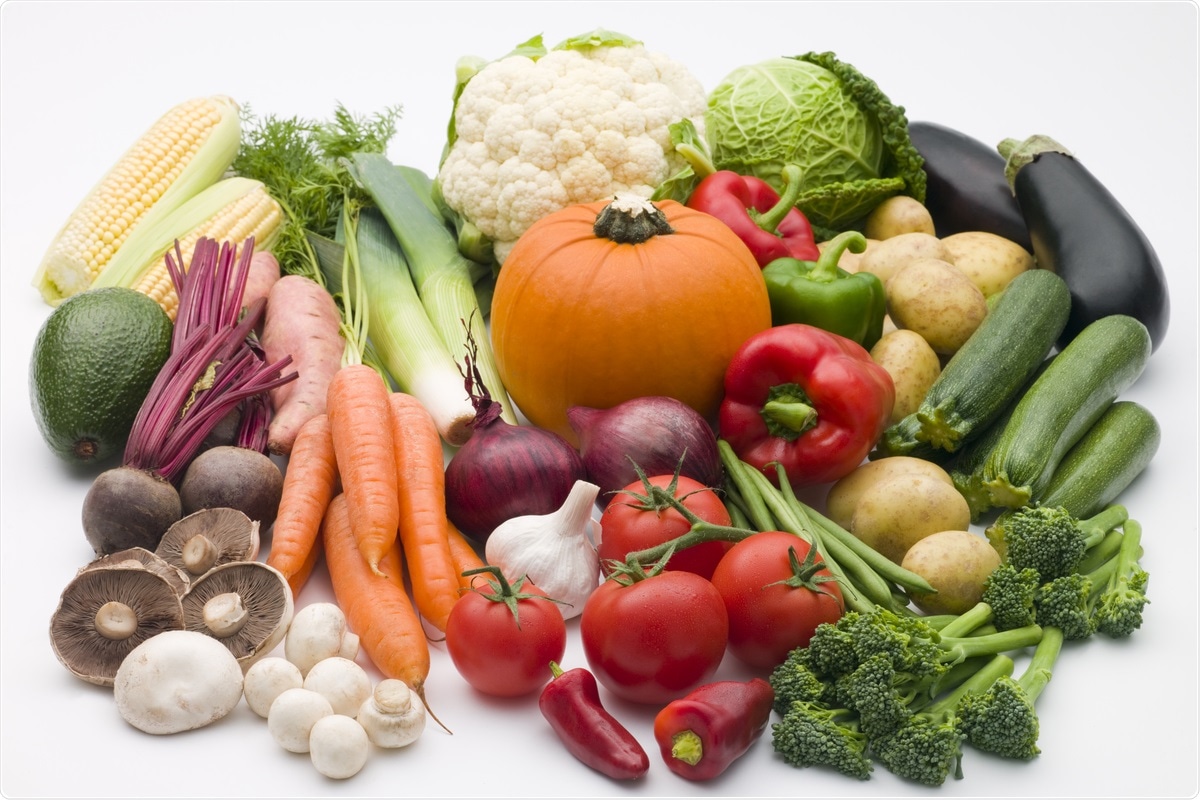Could a flavonoid found in common fruit and vegetables combat COVID-19?
Researchers in India have gathered and presented a large body of evidence highlight quercetin – a flavonoid molecule found in many common fruits and vegetables – may be developed into drug therapies used to combat the coronavirus disease 2019 (COVID-19).

Background
Flavonoids are polyphenol molecules that can be found in plants, fruits and vegetables. Many of these flavonoids have antioxidizing, antiviral, or antimicrobial properties that can, and have, been used to treat a wide variety of diseases in humans, such as lupus, malaria, and rheumatoid arthritis. Flavonoids have a wide-ranging number of positive effects in humans; one in particular is of interest when considering the global spread of COVID-19: quercetin
Quercetin is present in most fruits and vegetables, like apples, lemons, broccoli, and onion. It has a wide variety of benefits, including prevention against cardiovascular and neurodegenerative diseases, and protection against cancer, arthritis, diabetes, and many more types of infection.
Since its identification in late 2019 and subsequent global spread, Severe acute respiratory syndrome coronavirus 2 (SARS-CoV-2), the causative agent of COVID-19, has been the primary target of numerous drug and vaccine studies. While some vaccines are now publicly available, these measures are costly and prone to immune evasion from virus mutations. Drug development, therefore, is an alternate route for immunization.
Deepu Matthew, a professor at the Centre for Plant Biotechnology and Molecular Biology department of Kerala Agricultural University, India, led a small research team, highlighting quercetin as a potential candidate for new drugs to be based on that may be capable at combatting COVID-19. Quercetin-based drugs could potentially be circulated alongside vaccine programs as either boosters or alternatives, easing pressure on many public services.
The study
The research team gathered numerous publications relating to flavonoids, quercetin, COVID-19, and drug design to provide evidence that a quercetin-based compound may be effective in disarming COVID-19. They also performed molecular docking analyses, using 3D structures of ten key proteins of COVID-19, and estimating binding affinity to each of these regions by quercetin.
SARS-CoV-2 primarily binds to human angiotensin-converting enzyme 2 (ACE2) in respiratory cells, through the receptor-binding domain (RBD) on the surface of the spike protein of the virus. This region is, therefore, a significant target for drug therapies that may disable the virus.
Docking by quercetin to the RBD was shown to be good in three active sites of the RBD: SER349, LEU441, and ASN450. Additional resides of the spike protein (ASP88, ASP198, ILE233, and ILE235) also showed good docking affinity, representing further targets for drug therapies.
These results suggest that quercetin may be effective in preventing entry of SARS-CoV-2 to human cells, as it has high binding efficiency to the virus spike protein. Furthermore, quercetin appears to broadly bind to active sites on the virus, but not with sites of human ACE2. This is crucial, as if quercetin were to also disable ACE2, this would have a greatly detrimental effect on the cell and, by extension, the human body.
Mathew and colleagues also cite previous studies where drugs based on flavonoids were greatly bolstered by the addition of small volumes of zinc. The team, therefore, speculates that quercetin-based drugs with zinc may provide a powerful tool in disabling SARS-CoV-2 virus strains.
Concluding remarks
Currently, a few clinical trials are being carried out of quercetin with COVID-19 (these can be found at: http://www.clinicaltrials.gov/). These findings from Mathew and colleagues aim to bolster and highlight the significant effect that quercetin-based drugs may have on the virus. Since all modeling was performed through computational analysis, the authors encourage further search to urgently be carried out. However, their findings provide proof of concept for successful quercetin docking with SARS-CoV-2.